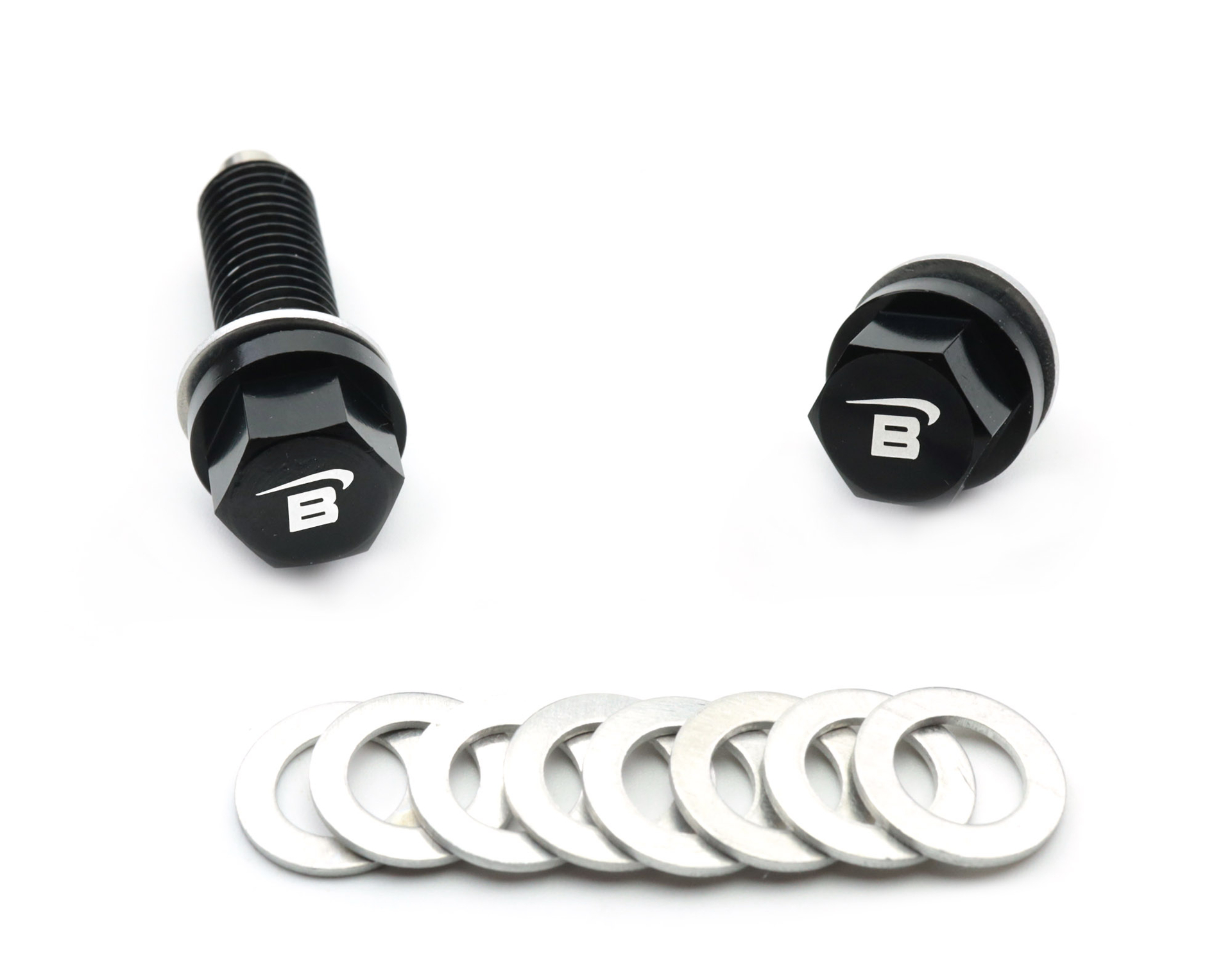How to calculate the Compression Ratio (CR) of your engine
There are two ways:
- Choose your engine code from the drop down menu. All values will be filled out automatically and you can „play around“ with the thickness of the head gasket. Thicker head gaskets will drop your compression ratio.
- You can fill all the data manually in the grey fields. This makes sense, if your engine code is not in our list, or if you have made big changes to your engine hardware like other pistons for example.
The easiest way to reach your wished Compression Ratio is the head gasket thickness. Therefore we offer steel multi-layer head gaskets in different thicknesses. This type of head gasket is used in motorsports as they offer the best sealing in combination with reliability. Please be aware, that each gasket will be produced after your order. So if the wished thickness is not in stock when you order, it could take some time until we can ship it to you. In addition to each engine build we recommend to use also ARP studs together with the new gasket. The ARP studs are much stronger than OEM bolts, so they can hold more boost and engine revs. Apart from this they can be also reused as many times as needed.
Click HERE to get to our head gaskets.
CHOOSE ENGINE CODE:
DIFFERENCE:
CAPACITY OF HEAD GASKETS:
CAPACITY OF COMBUSTION CAMBER:
CAPACITY OF ONE CYLINDER:
COMPLETE CAPACITY OF THE ENGINE:
RESULT
: 1
Compression
: 1
The correct Compression Ratio is very important for each engine.
The ratio between the cylinder capacity and the compression chamber is known as the Compression ratio (CR). The CR must fit to the engine design or specification. The available fuel sort is also one key factor (Octan index). Basically can be said, that with a higher Octan index also the CR of the engine can be higher.
- Too high CR or bad fuel with low Octan index can lead to engine failures due to knocking combustion!
- Too low CR will end up with inefficient combustion and power drop. The engine will be lagy and slow during acceleration. Peak power will be low also.
What Compression Ratio should I choose?
Tuning an engine means that we want more power. This can be done with increasing the boost on a Turbo engine. Until a certain limit the original Compression Ratio can stay, only the ECU Software needs to be updated for the higher boost. But if you plan a bigger turbo the Compression Ratio needs to be lowered to avoid combustion knocking. More boost means more cylinder filling and therefore the risk of knocking is going up. Newer engines have a good knocking control, so they recognize when the combustion is not in a perfect range, but this safety feature should not act all the time. It is just for safety reasons for example if fuel with low Octan index will be used. The knocking control will decrease ignition so engine power will be lost to safe the engine from damage.
The target should be to find the correct compression ratio for your engine setup, fuel quality and boost.
Examples for a good engine setup:
1.8T (20V) engine as used in the Golf MK4 or Audi TT until year 2005:
Garrett GTX28 Turbo, 102 OOctan fuel = best CR 8,5:1
Max. power output with our ECU tuning 330 hp.
2.0L TFSI engine as used in the Golf MK5 or Audi A3 until year 2012:
KKK Upgrade Turbo V2 BAR-TEK, 102 Octan fuel = best CR: 9:1
Max. power output with our ECU tuning 420 hp.
2.5L TFSI engine as used in the Audi RS3 or TTRS:
Garrett GTX 35 Turbo, 102 Octan fuel = best CR 9:1
Max. power output with our ECU tuning 750 hp.
As you can see on these 3 different engine setups the best CR is always different. This depends also on the basic engine design and other factors. In general the CR should be more to the lower side when tuning an engine. Knocking should be avoided and running low Octan fuel also. If you are not sure about your correct CR the best way would be to measure the volume of the pistons and head by a professional engine builder or you get in contact with us directly.
Click HERE to get in contact with us.




































































































